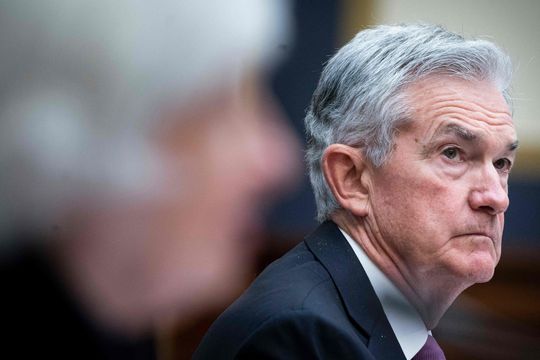The emergence of the omicron variant poses downside risks to the economy and adds to uncertainty over inflation, said Fed Chairman Jerome Powell on Monday.
“Greater concerns about the virus could reduce people’s willingness to work in person, which would slow progress in the labor market and intensify supply-chain disruptions,” Powell added, in brief remarks prepared for delivery on Tuesday to the Senate Banking Committee. The testimony was released early.
Fed watchers are divided over what the spread of omicron means for Fed policy.
Until news of the variant was released last week, Fed watchers thought the central bank was preparing to accelerate the pace of tapering of its asset purchases at a faster pace so that the purchases could end in March instead of June.
Chris Low, chief economist at FHN Financial, noted the Fed didn’t react much at all to the delta variant.
But others think omicron will cause the Fed to take a patient approach.
“If a clearer, and reasonably positive picture has not emerged by the time of the Dec. 14-15 meeting, then the Fed presumably will delay the decision to accelerate the pace of tapering,” said Ian Shepherdson, chief economist at Pantheon Macroeconomics, in a note to clients.
The yield on the 10-year Treasury note TMUBMUSD10Y, 1.502% has fallen close to 1.5% from nearly 1.7% late last week after the new variant emerged.
The World Health Organization said the global risk from the new variant was very high.
In his testimony, Powell said the Fed continues to expect that inflation “will move down” significantly over next year as supply and demand imbalances abate.
“It is difficult to predict the persistence and effects of supply constraints, but it now appears that factors pushing inflation upward will linger well into next year,” Powell said.
He added that the labor market is improving rapidly, with wages rising at a brisk pace.
Matt Luzzetti, chief U.S. economist at Deutsche Bank, thinks the Fed will double the monthly reduction in asset purchases to $30 billion from $15 billion per month. He also moved forward on liftoff of short-term interest rates from July to June.
“However, if the key data points over the next two weeks disappoint materially, market turmoil does not subside, or negative news become evident on the virus front, we will revisit this expectation,” Luzzetti said in a note to clients.

